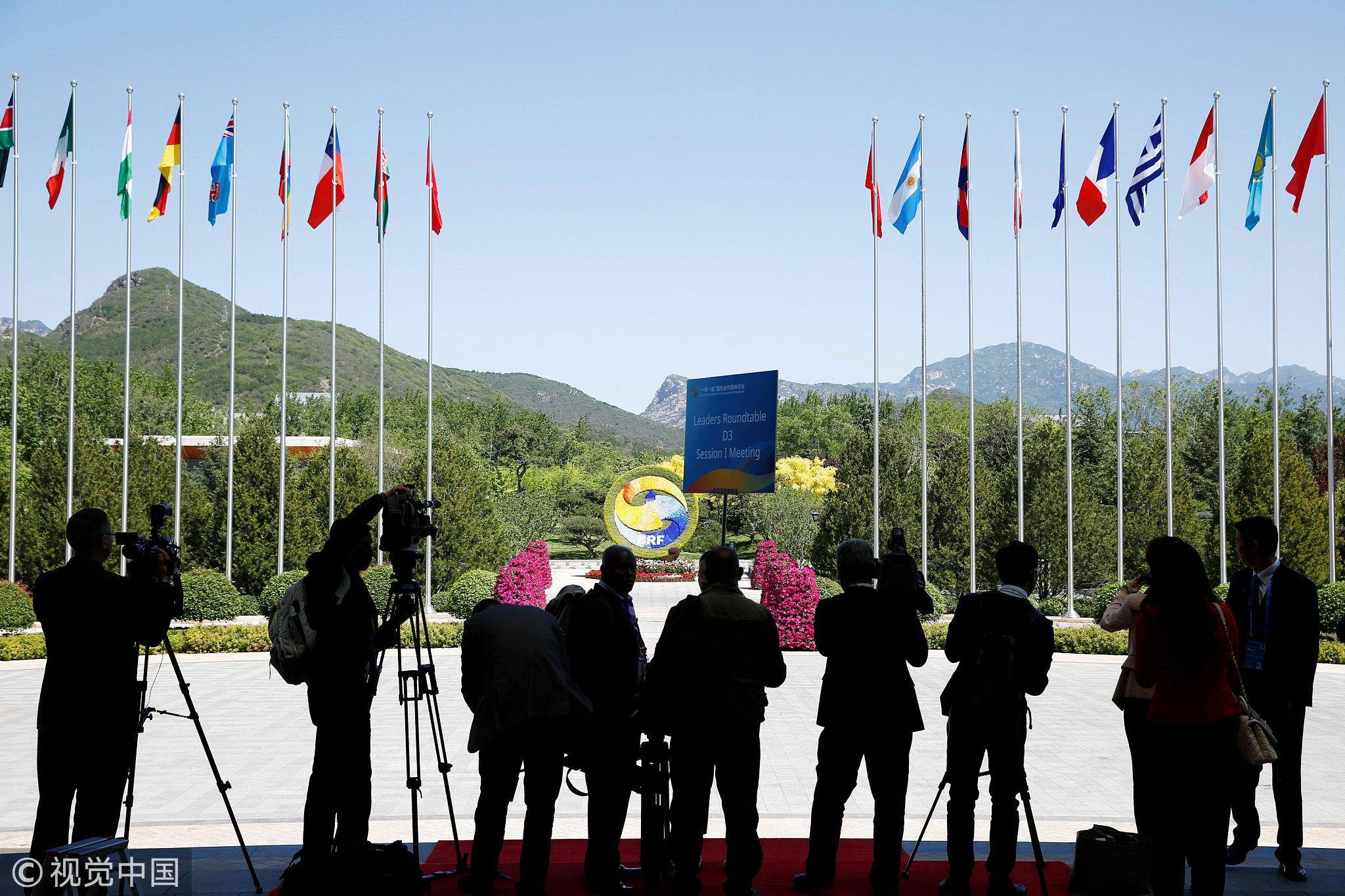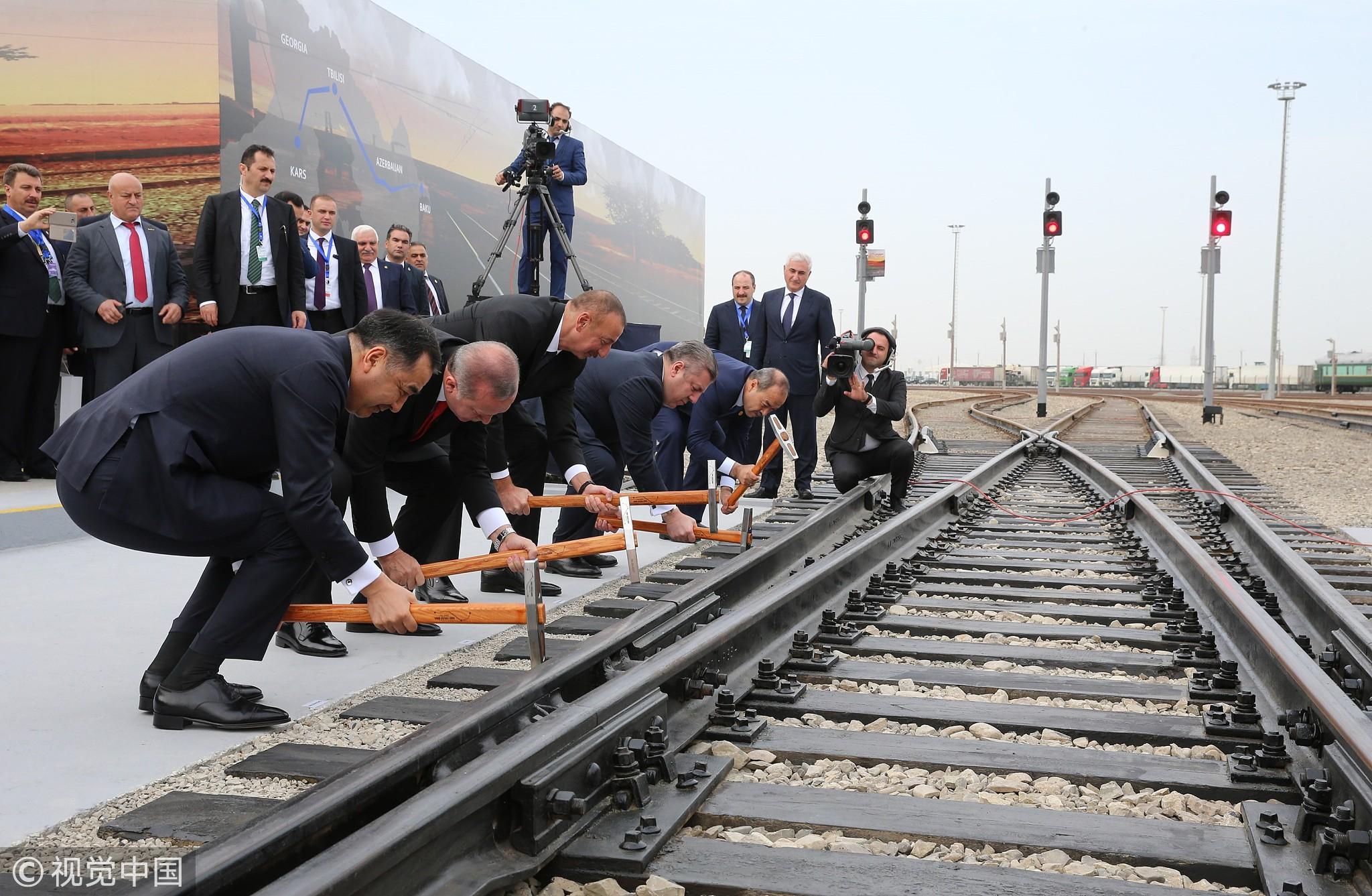
Opinions
17:03, 23-Oct-2018
Opinion: Azerbaijan is an important link into Europe for China's BRI
Updated
16:36, 26-Oct-2018
Seymur Mammadov

Editor’s Note: Seymur Mammadov is the director of the international expert club “Eurasia-Azerbaijan” and editor-in-chief of the Azerbaijani news agency Vzglyad.az. The article reflects the author's opinion, and not necessarily the views of CGTN.
When the Belt and Road Initiative (BRI) was launched in 2013, many states, both in the West and in the East, were wary of it. With the implementation of large transport and logistics projects in countries that are located along the conceptual routes of the BRI, many states today are already welcoming the Chinese initiative and more and more countries are coming to the conclusion that this initiative is not a threat, but a panacea for economic growth.
For China the foreign policy principle of “you are either with us, or against us” is obsolete geopolitical maneuvering. China is interested in forming partnerships through a dialogue where there is no place for confrontation, and instead of alliances, there is friendship.
Today, China maintains partnerships of various levels with those who do not interfere in its internal affairs, recognize its fundamental interests, and respect its sovereignty and territorial integrity. China insists that territorial conflicts be addressed in accordance with the UN Charter and the international law.

Journalist take pictures outside the venue of a summit at the Belt and Road Forum in Beijing, China, in May 2017. /VCG Photo
Journalist take pictures outside the venue of a summit at the Belt and Road Forum in Beijing, China, in May 2017. /VCG Photo
At present, Azerbaijan is an important player in the South Caucasus region, which is also a crucial part of the Silk Road Economic Belt. The country became a founding member of the Asian Infrastructure Investment Bank in April 2015 and a dialogue partner of the Shanghai Cooperation Organization the next year. China and Azerbaijan signed a memorandum of understanding on construction of the Silk Road Economic Belt.
What can Azerbaijan offer to China within the BRI framework? The first project is the Baku-Tbilisi-Kars railway. Commissioned on October 30, 2017, the project is designed to connect the Trans-European and Trans-Asian railway networks. It provides Turkmenistan, Kazakhstan, Uzbekistan, Kyrgyzstan, Tajikistan, and Afghanistan with access to the European and world markets, and thus is warmly welcomed in Central Asia.
The Baku-Tbilisi-Kars railway is also of great importance to China, making it easier for Chinese goods to reach the European markets. With growing domestic production, China is considering expanding its cargo deliveries to Europe, and the Baku-Tbilisi-Kars railway may become an ideal route connecting Beijing and Europe.

Turkish President Recep Tayyip Erdogan (2nd L), Azerbaijani President Ilham Aliyev (3rd R), Kazakhstan's Prime Minister Bakytzhan Sagintayev (L), Georgian Prime Minister Giorgi Kvirikashvili (4th L) and Uzbekstan's Prime Minister Abdulla Nigmatovich Aripov (5th L) attend the opening of the first official train service of Baku-Tbilisi-Kars railway project in Baku, Azerbaijan, on October 30, 2017. /VCG Photo
Turkish President Recep Tayyip Erdogan (2nd L), Azerbaijani President Ilham Aliyev (3rd R), Kazakhstan's Prime Minister Bakytzhan Sagintayev (L), Georgian Prime Minister Giorgi Kvirikashvili (4th L) and Uzbekstan's Prime Minister Abdulla Nigmatovich Aripov (5th L) attend the opening of the first official train service of Baku-Tbilisi-Kars railway project in Baku, Azerbaijan, on October 30, 2017. /VCG Photo
The second project is the Baku International Sea Trade Port. Under the guidance of Azerbaijani President Ilham Aliyev, a free trade zone is being created in the Alat settlement of Baku, which will be of special significance in making Azerbaijan an international transport hub.
Azerbaijan is gradually becoming an important transport and logistics center in the region, the above-mentioned projects can contribute to the development of the BRI.
Baku attaches great importance to trade and economic cooperation with Beijing. China is one of the main suppliers of products to Azerbaijan. Chinese companies' heavy investments in Azerbaijan mean that Beijing-Baku cooperation is promising.
China-Azerbaijan bilateral trade hit a record of approximately 1.3 billion US dollars in 2017, up 33 percent from the previous year. Azerbaijan's main exports to China were chemical products, fuel, plastics and plastic products, while China's exports to Azerbaijan included electric equipment, vehicles, clothing and household items.
The positive dynamics in China-Azerbaijan trade cooperation, including agreements on the supply of Azerbaijani products to China and the opening of the Azerbaijan Wine House in Urumqi, gives grounds to conclude that the two countries will see growing trade volumes.
According to the latest data from the State Customs Committee of Azerbaijan, bilateral trade between Azerbaijan and China reached 616 million US dollars from January to July 2018.
Despite geographical distances, China and Azerbaijan will see improving ties because the two countries have a desire to continue cooperation at both the bilateral and multilateral level and Azerbaijan is important to China not only within the BRI framework, but also in terms of energy cooperation.
(If you want to contribute and have specific expertise, contact us at opinions@cgtn.com.)

SITEMAP
Copyright © 2018 CGTN. Beijing ICP prepared NO.16065310-3
Copyright © 2018 CGTN. Beijing ICP prepared NO.16065310-3